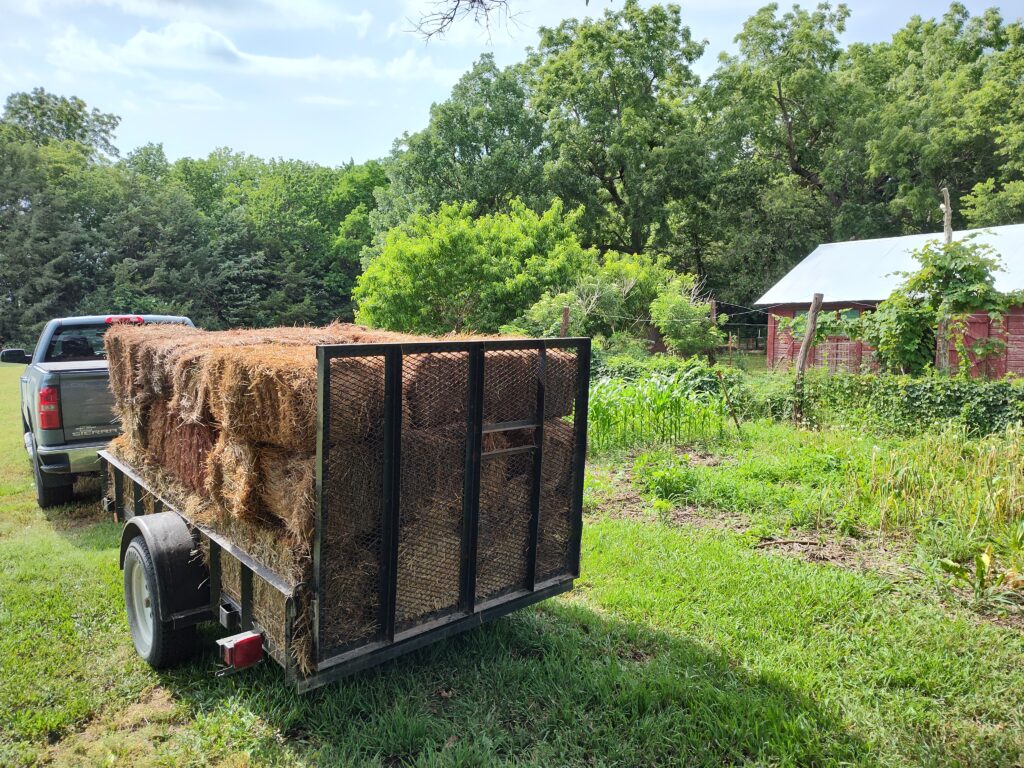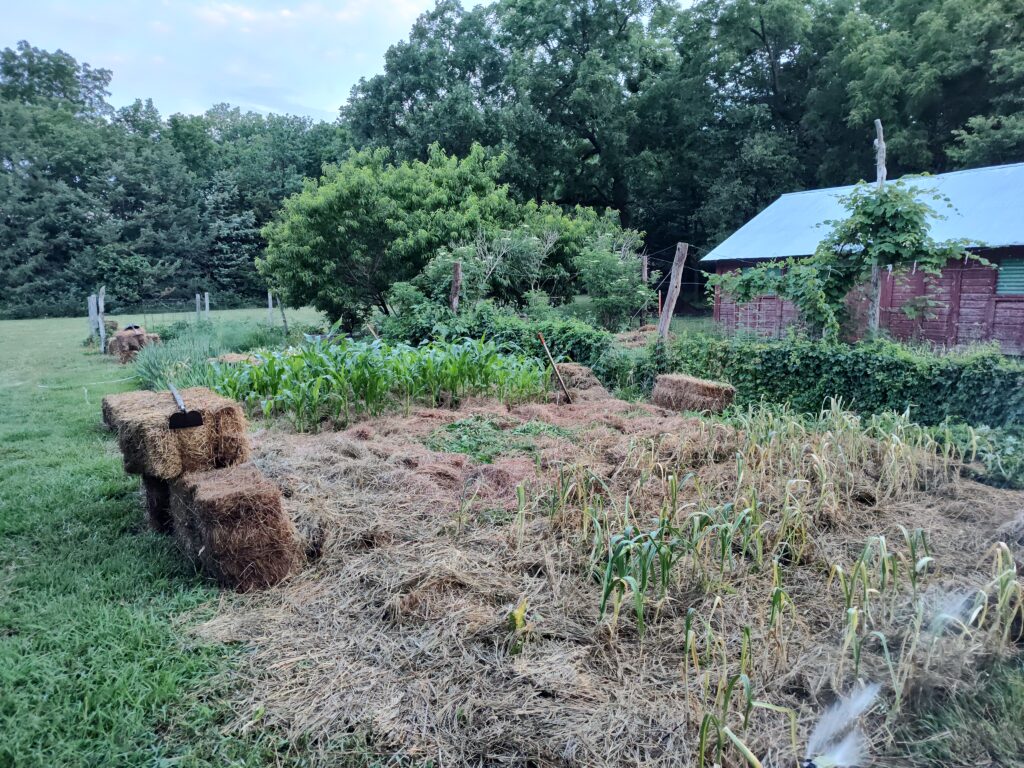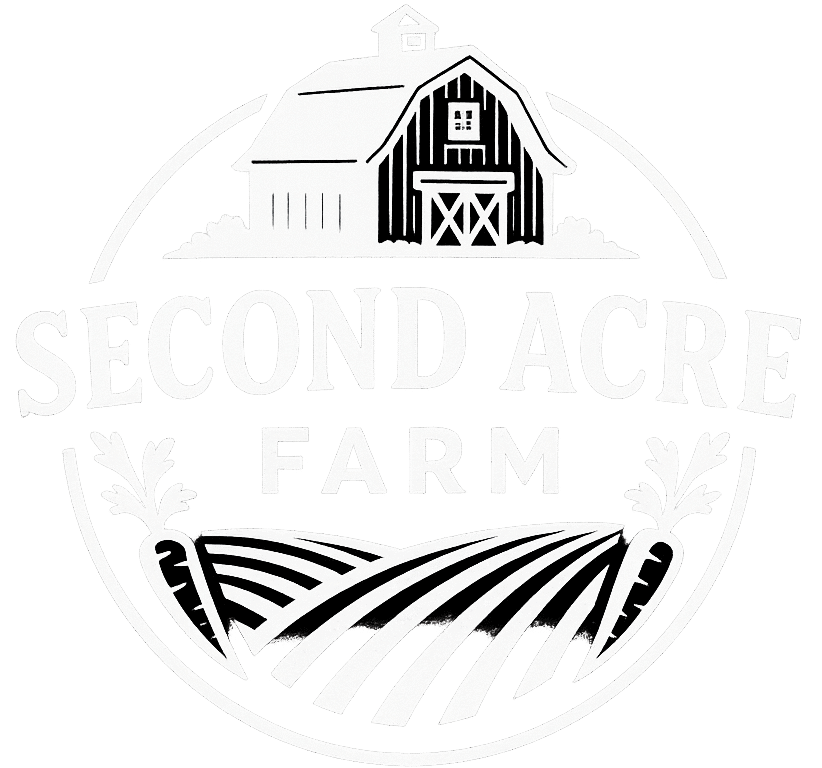The Science Behind the Method
Look, I didn’t just wake up one day and decide to bury my entire garden under a mountain of wood chips for the aesthetic. I’m doing this because it works—and not just according to some guy in a documentary. There’s real science backing up the Back to Eden method.
Healthy Soil Doesn’t Happen by Accident
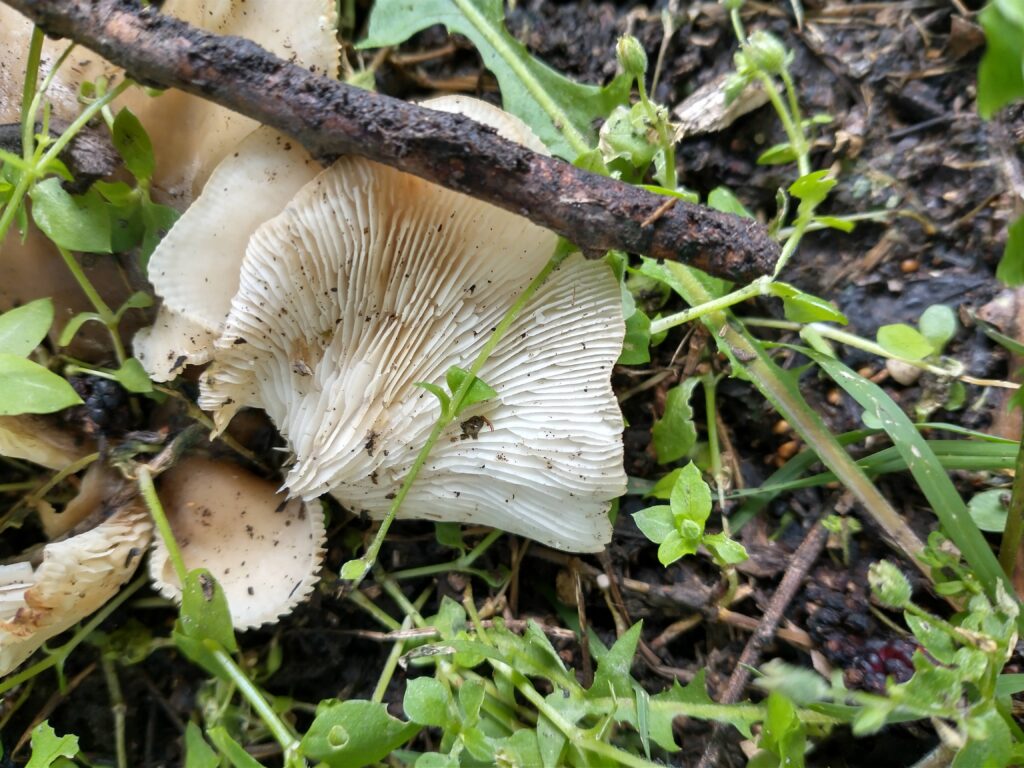
Let’s start with the ground under our feet—literally. When you layer wood chips over the soil, you’re not just mulching. You’re mimicking the forest floor, which has been building healthy ecosystems since long before we had rototillers.
Research shows that mulching with organic matter boosts soil microbial life, increases earthworm activity, and supports mycorrhizal fungi. Translation? Better nutrient availability and soil that’s alive—not just dirt with dreams. Studies from places like the Rodale Institute and USDA back this up. No fluff. Just results.
Water Retention: Nature’s Irrigation System
One of the most obvious benefits I’ve seen—and the science agrees—is moisture retention. A thick mulch layer acts like a sponge and a shield. It holds water when it’s scarce and keeps the sun from baking the ground into cracked concrete.
Peer-reviewed data shows that mulched soil retains up to 25–50% more moisture compared to bare soil. That means less watering, less stress, and more time to drink your coffee and stare proudly at your tomato plants.
Weed Suppression That Actually Works
This one’s simple: weeds hate the dark. Wood chips block light, which stops most weed seeds from germinating. Studies show up to 90% weed reduction with consistent mulch use. That’s not marketing hype—that’s straight from university extension programs.
It’s like laying down a blanket and telling the weeds, “Not today.”
Why I Don’t Till
No-till isn’t lazy. It’s smart. Tilling destroys soil structure and microbial networks that plants rely on. When you stop flipping the soil every season, you give nature a chance to organize its own underground infrastructure.
Research from regenerative agriculture groups shows long-term no-till practices lead to increased organic matter, better root development, and improved water infiltration. Plus, your back will thank you.
So What Does This All Mean for You?
If you’re wondering whether this method is just a hippie phase, it’s not. It’s practical, efficient, and scientifically backed. I’m using wood chips and organic matter to work with nature, not against it—and I’m seeing the results firsthand.
If you want links to actual studies, the list is below. But the proof is already in the soil.
🌱 Soil Health & Microbial Activity
- Organic Mulching Enhances Soil Bacterial Communities
A study published in Microorganisms found that organic mulching significantly improved soil bacterial diversity and structure, contributing to healthier soil ecosystems.
(MDPI) - Wood Chips and Compost Improve Soil Quality
Research in Arboriculture & Urban Forestry demonstrated that wood chip mulch and compost increased soil organic matter, microbial respiration, and overall soil quality.
(ISA Arbor)
💧 Moisture Retention & Water Management
- Mulching Techniques Conserve Soil Water
A review in the Current World Environment Journal highlighted that organic mulches reduce evaporation, improve infiltration, and enhance soil moisture retention, leading to better water conservation in agricultural practices.
(UC Agriculture and Natural Resources) - Assessment of Water Retention by Organic Mulch
A study in Soil Systems investigated various organic mulches and found that they significantly improved water interception, retention, and absorption, aiding in drought mitigation.
(MDPI)
🌾 Weed Suppression
- Living Mulch Suppresses Weeds in Organic Vegetable Plots
Research from the University of Wisconsin-Madison indicated that living mulches effectively suppressed weed populations, reducing the need for chemical herbicides in organic farming systems.
(cias.wisc.edu) - Integrated Management of Living Mulches for Weed Control
A review in Weed Technology discussed how living mulches can be managed to control weeds effectively, emphasizing their role in sustainable agriculture.
(Cambridge University Press & Assessment)
🚜 No-Till Practices & Soil Conservation
- No-Till Farming Improves Soil Health and Mitigates Climate Change
The Environmental and Energy Study Institute reported that no-till farming enhances soil health, reduces erosion, and contributes to climate change mitigation by increasing carbon sequestration.
(Environmental and Energy Study Institute) - Lessons from Long-Term No-Till Research
Michigan State University’s long-term research demonstrated that continuous no-till systems accumulate more soil organic carbon and improve soil structure compared to conventional tillage.
(Agri College)
📚 Additional Resources
- Smart Gardeners Improve Their Soil and Weed Control with Organic Mulch
Michigan State University Extension provides practical insights into how organic mulching benefits soil health and weed management in home gardening.
(Agri College) - Effect of Mulches on Crop, Soil, and Water Productivity: A Review
This comprehensive review in Agricultural Reviews discusses the multifaceted benefits of mulching on crop yield, soil properties, and water conservation.
(ARCC Journals)
Garden Expansions – 2025
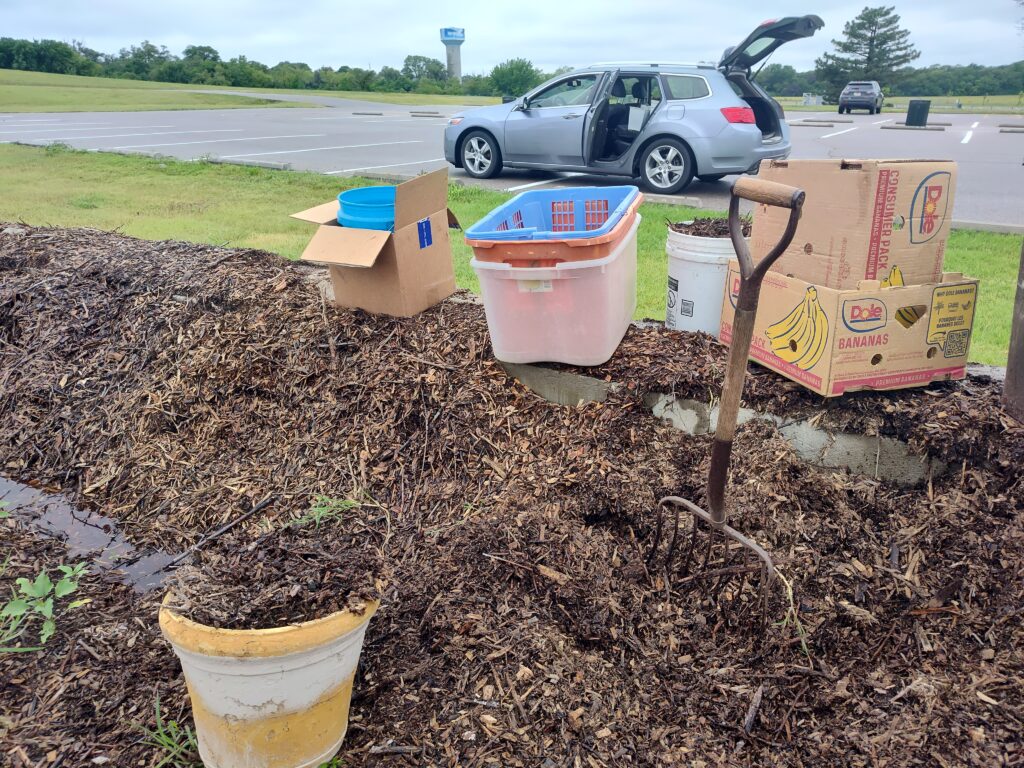
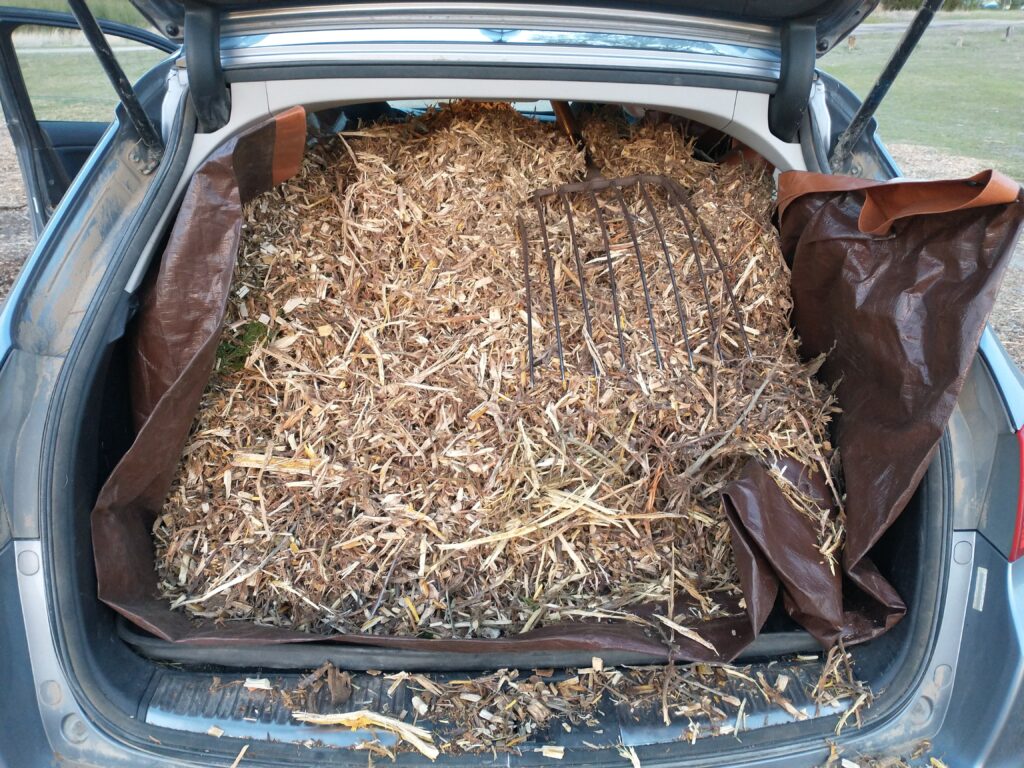
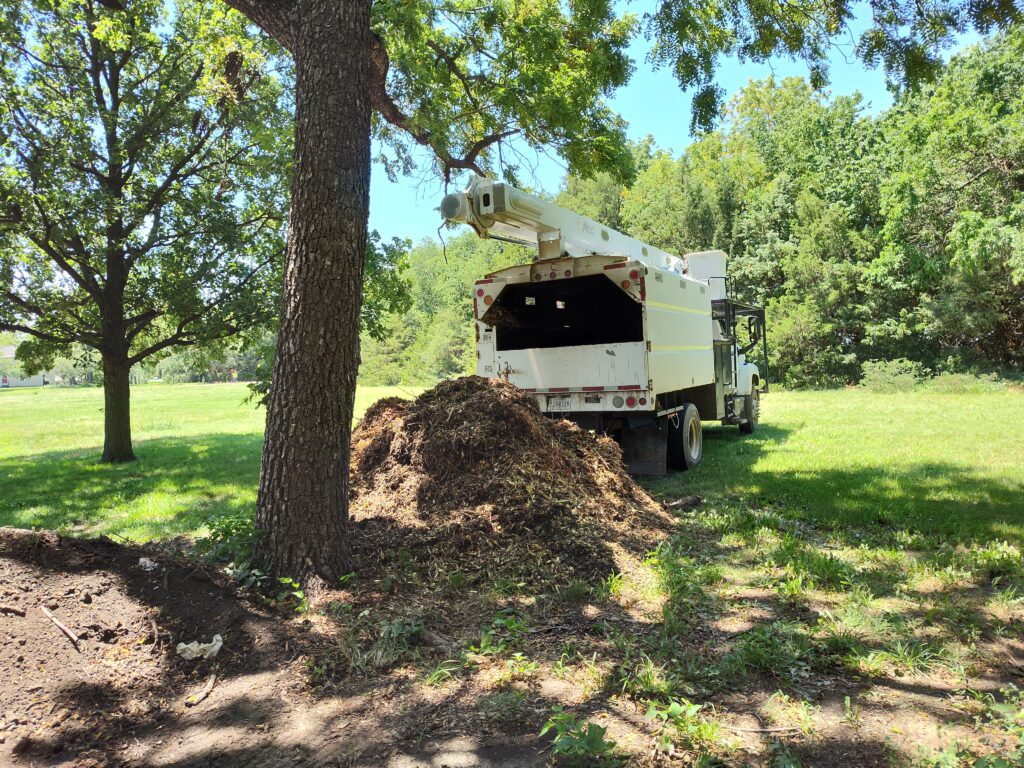
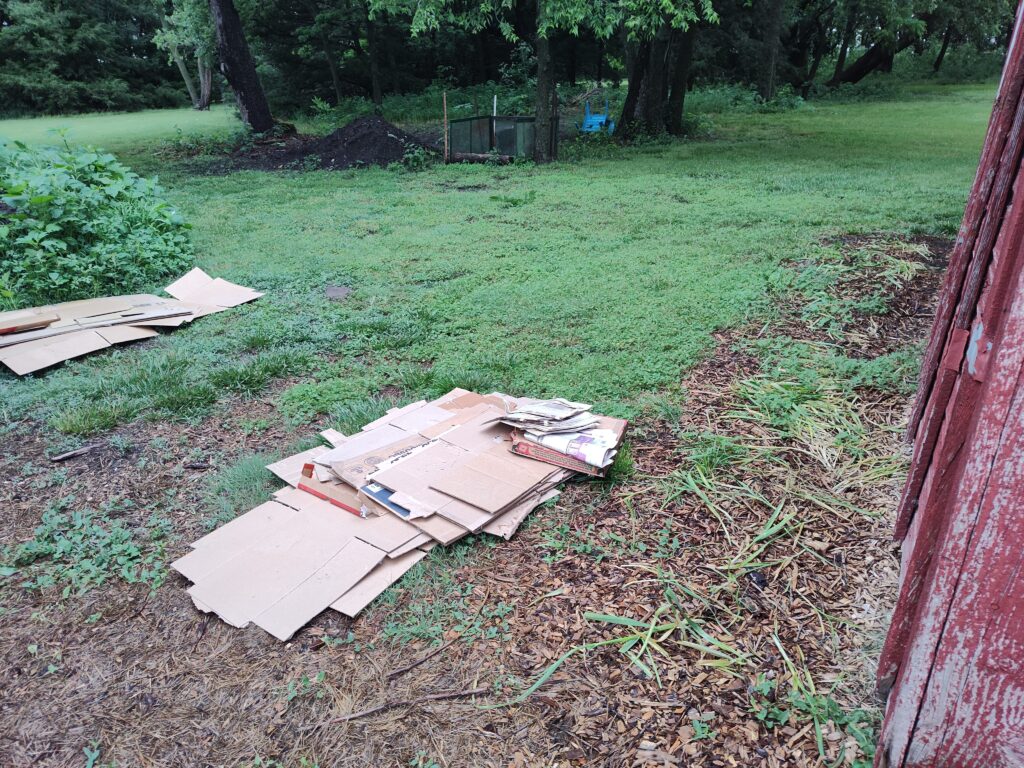
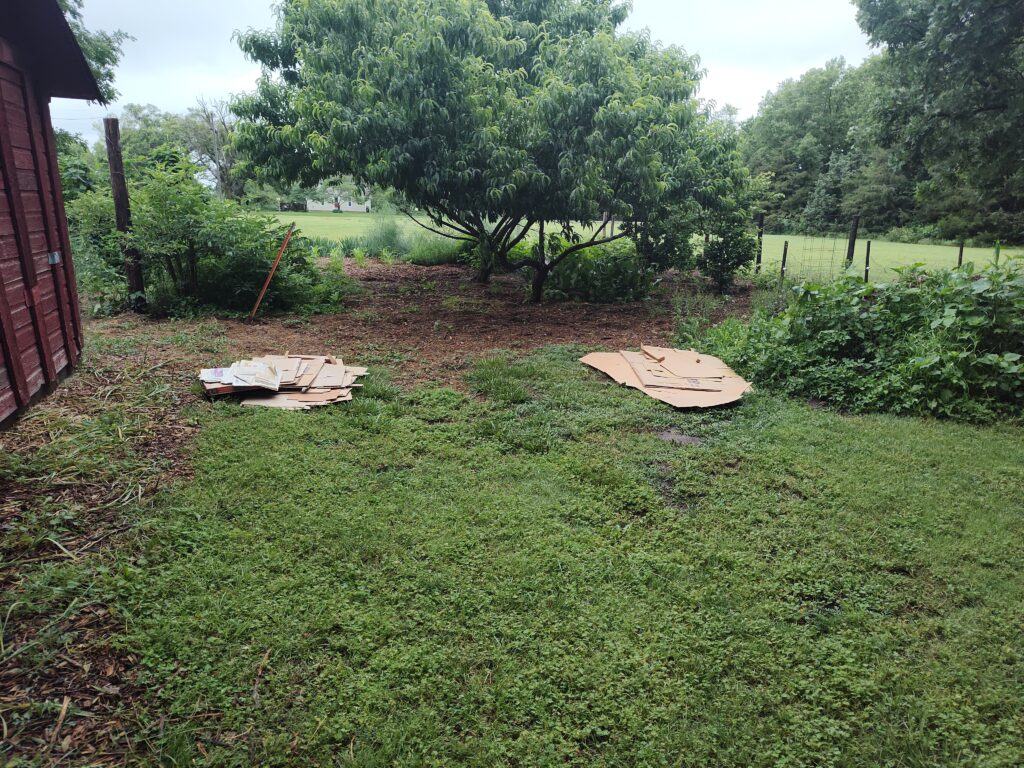
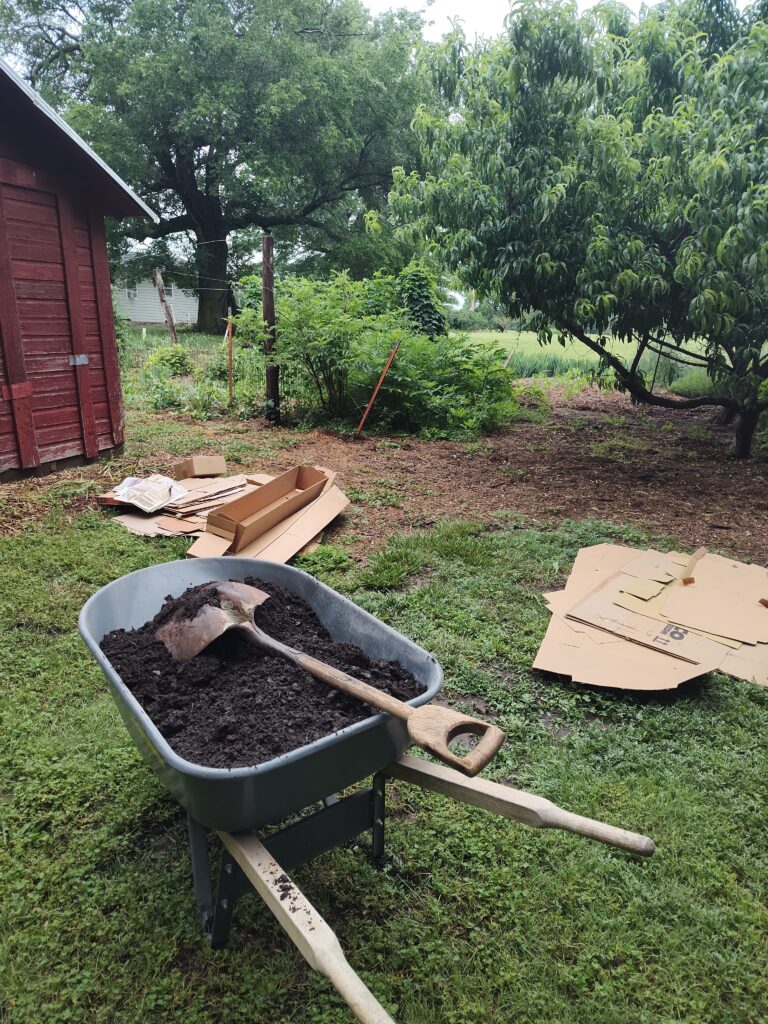
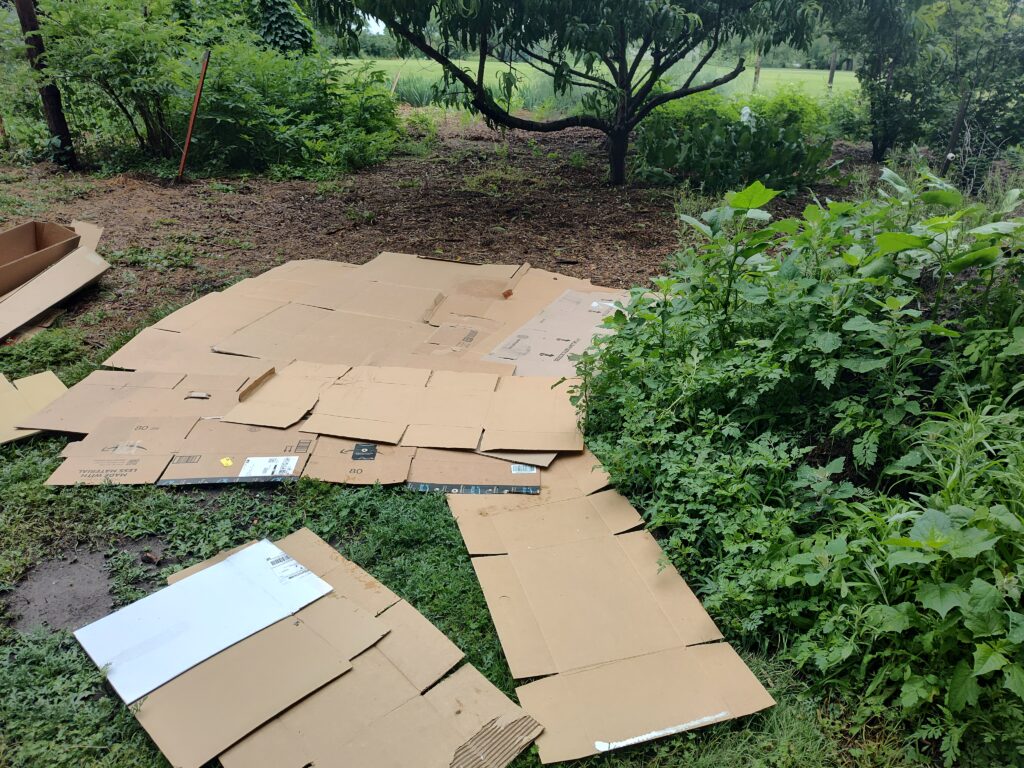
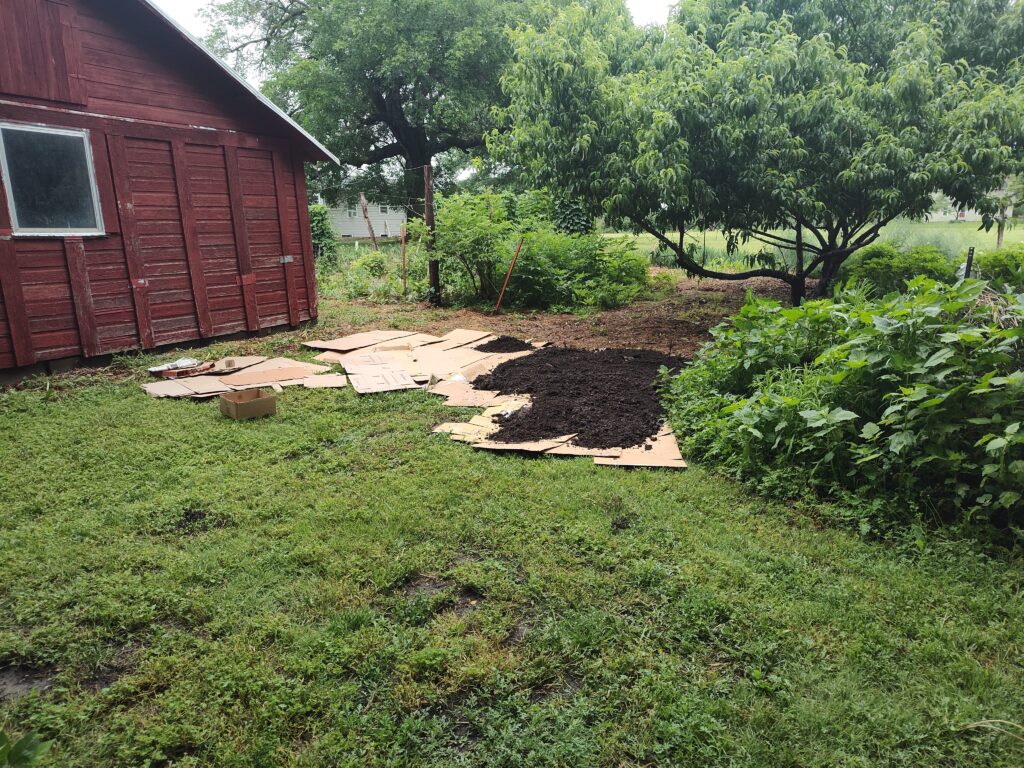
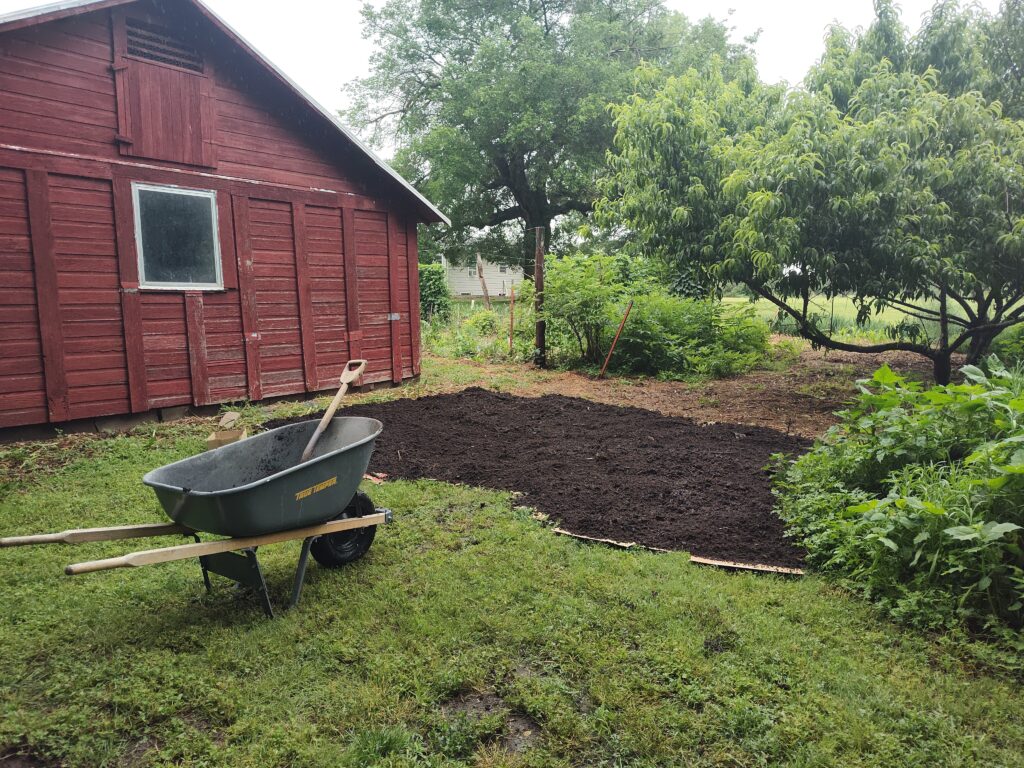
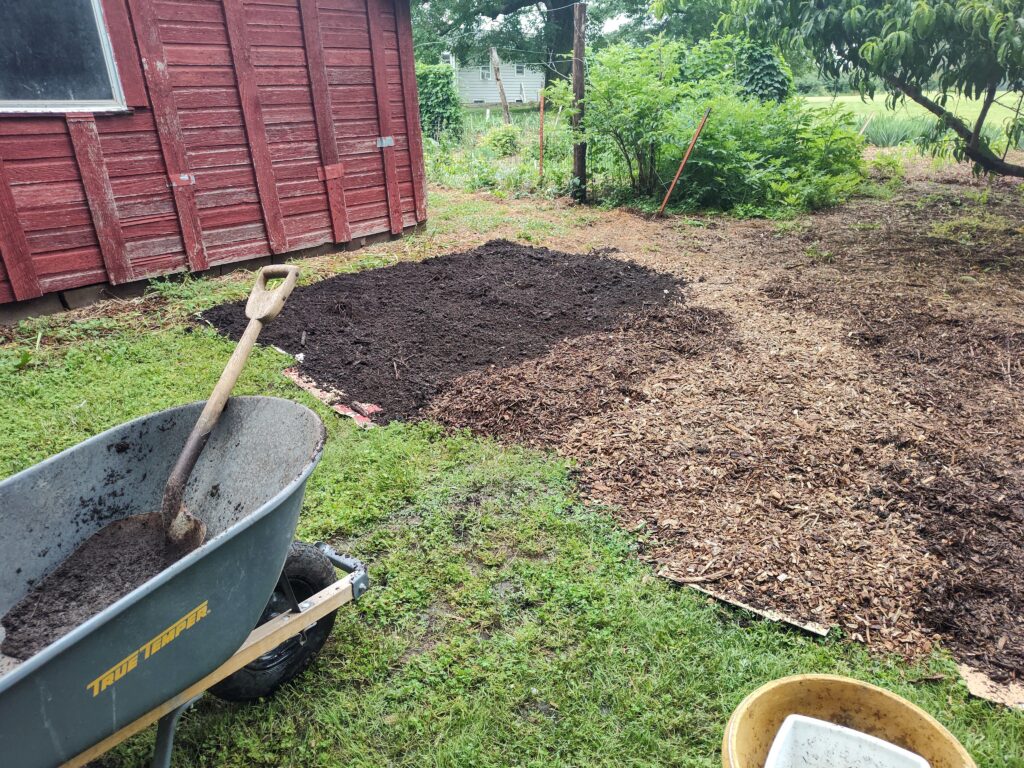
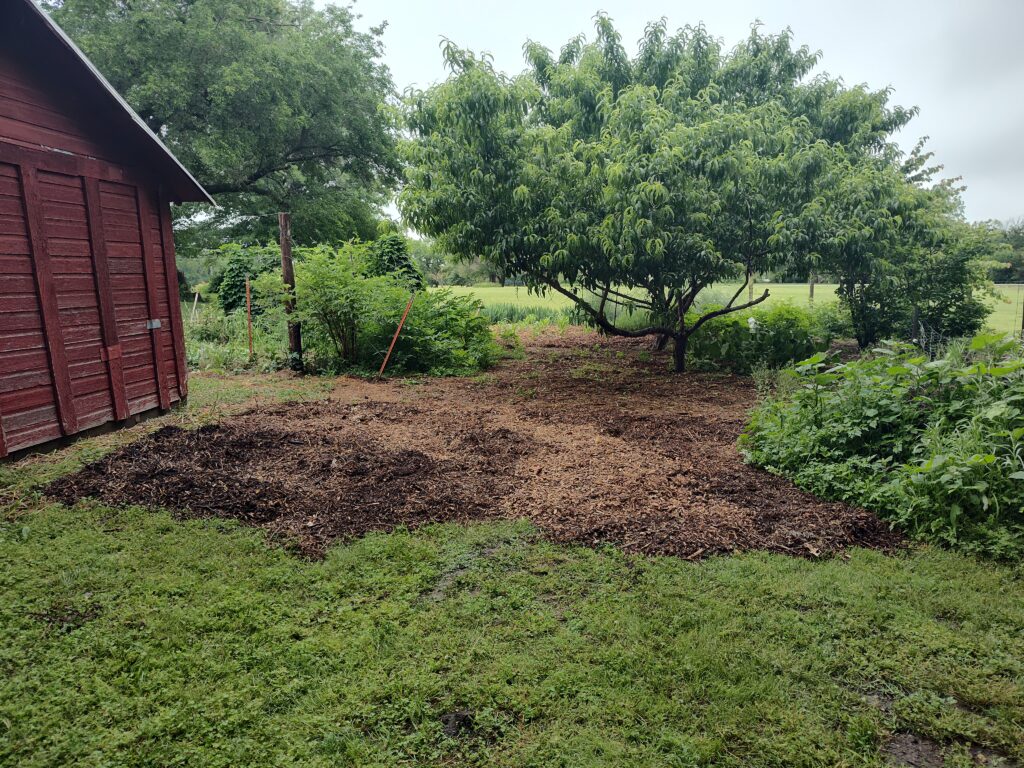
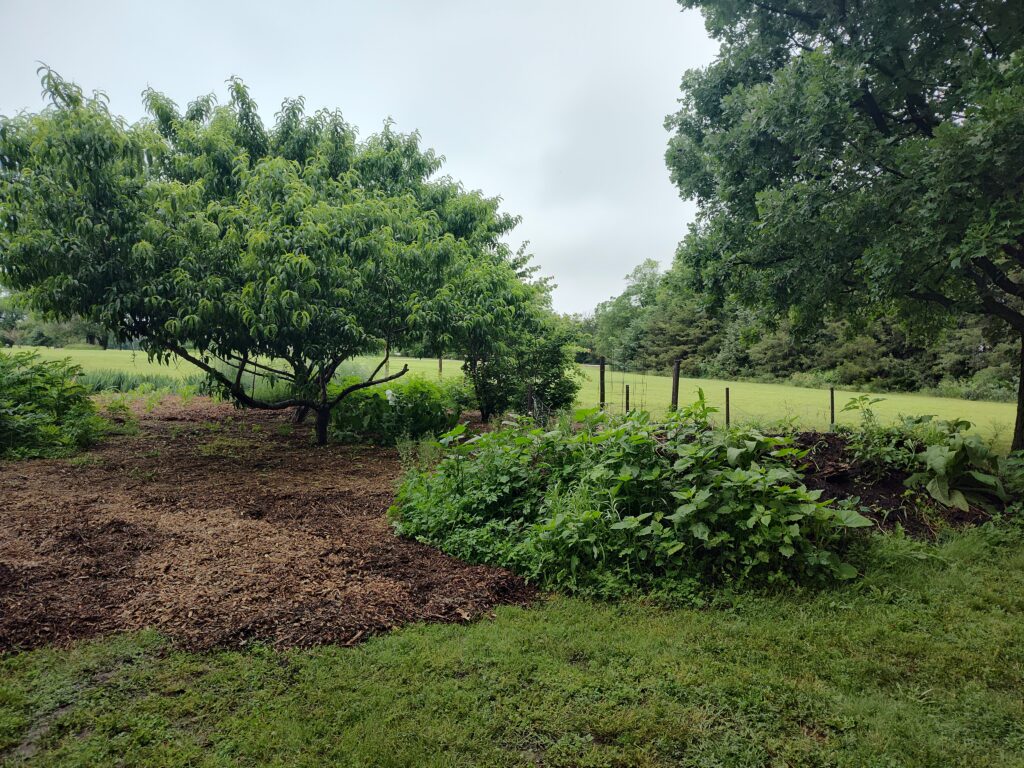
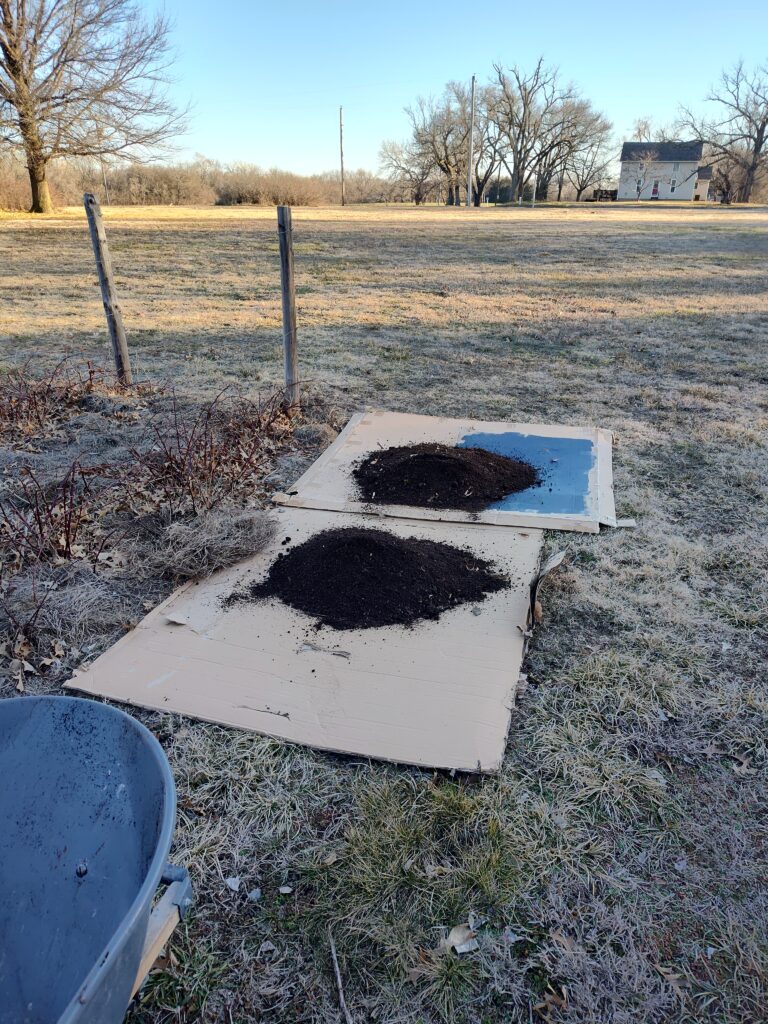
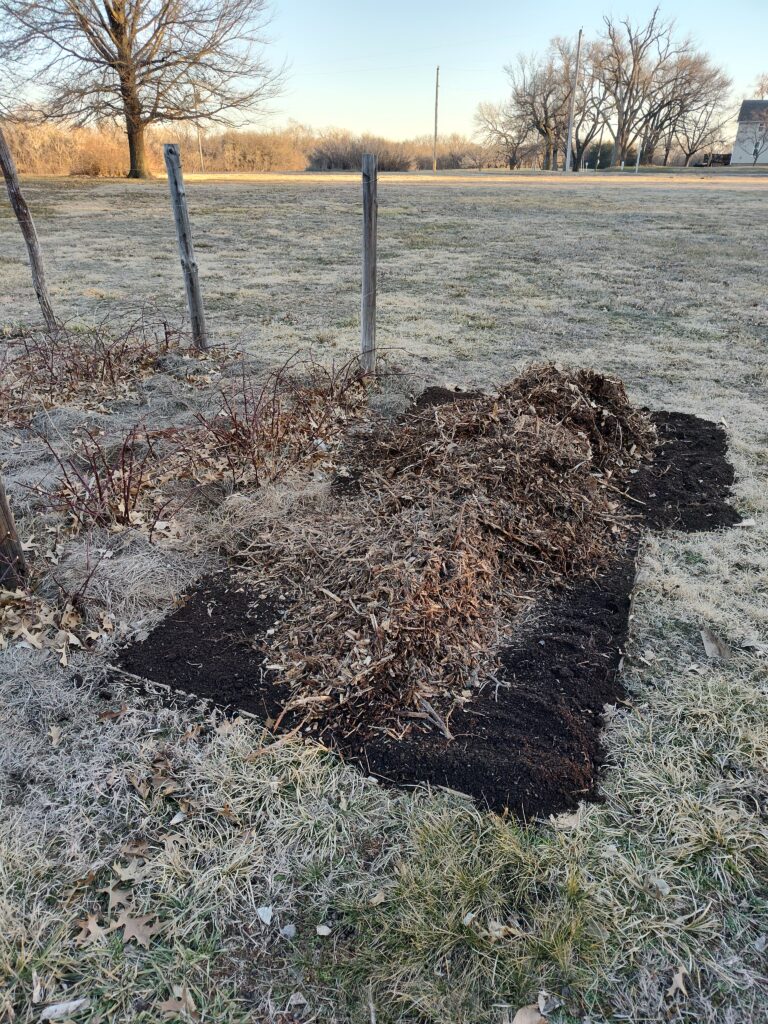
Ruth Stout Method
Using heavy layers of straw or hay vs. wood chips. This was a load of 40 year old prairie hay from my parents barn – applied in June of 2024.
